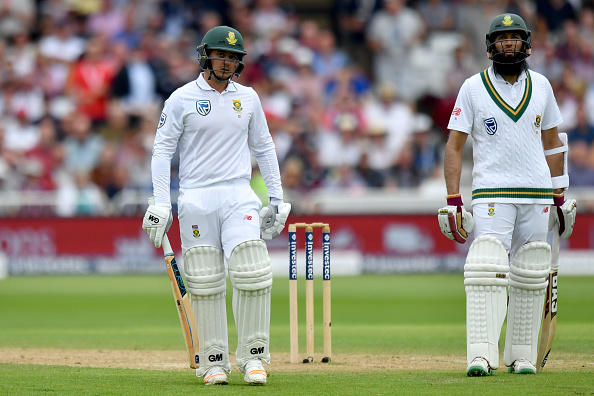Proteas coach Ottis Gibson may need to revise the balance of the side as well as the strategy ahead of a very different challenge against Australia.
It was a bowlers series against India. The South African quicks excelled across the first two Tests, and ultimately propelled the hosts into an unassailable 2-0 lead.
There was a lot to take away from those first two games. Dale Steyn troubled the better Indian batsmen with his pace and swing at Newlands before he sustained a serious heel injury. A leaner and meaner version of Vernon Philander was virtually unplayable in both of those matches.
Kagiso Rabada was both fast and furious. Lungi Ngidi took seven wickets on debut, and claimed the prize wicket of Virat Kohli in the process.
By the end of the second Test, most were in agreement that South Africa were on the right track in terms of their strategy and mindset.
Thereafter, India made a statement via a world-class fast-bowling display of their own. Clearly they do have what it takes to perform and win on the the quicker, bouncier tracks outside of the sub-continent.
There’s been a lot of talk about the Wanderers pitch over the past week. West Indies great Michael Holding and former Proteas skipper Kepler Wessels described it as dangerous. Dean Elgar, who battled his way to 86 not out after being struck on the head, said that play should have been abandoned earlier on day three.
Ultimately, the record books will show that India beat the Proteas by 63 runs. Many years from now, people will look at the scorecard and note that both teams favoured five-prong pace attacks.
They may pore over the stats and come to the conclusion that India beat South Africa at their own game. While Hashim Amla and Elgar deserve special mention for their brave efforts at the Wanderers, it was the Indian batsmen – Kohli and Ajinkya Rahane in particular – who played with confidence on an unfavourable track.
GARY LEMKE: Kohli showed his class with the bat
India were a class apart in the bowling and fielding departments. The visitors were particularly good late on day four, claiming nine wickets for 53 runs.
The Proteas middle-order crumbled, not for the first time in the game – AB de Villiers, Faf du Plessis, and Quinton de Kock scored 29 runs between them across the two innings – and not for the first time over the past two years.
It’s easy to dismiss the performance and the result at the Wanderers. The Proteas went into the third game knowing that they could not lose the series. Perhaps that contributed to a display that lacked intensity. They should be more focused when the four-match series against Australia commences in March.
The bowlers failed to hit the right areas on a Wanderers track offering plenty of assistance. That can certainly be fixed before the Aussies arrive. As things stand, the Proteas look set to fight fire with fire.
England failed to combat the fast bowling of Mitchell Starc, Josh Hazlewood, and Pat Cummins in the recent Ashes series. It was around the time when South African fans were hailing the arrival of the Proteas’ Four Horsemen in the first Test against India at Newlands that Starc, Hazlewood, and Cummins were ripping through the England lineup in Sydney. Australia crushed England by an innings and 123 runs in the final game to win the series 4-1.
It’s going to be interesting to see what kind of pitches the groundsmen at Kingsmead, St Georges Park, Newlands, and the Wanderers prepare for the Tests involving Australia. On the one hand, South Africa should be looking to exploit their fast-bowling strengths. On the other, those conditions may help an Australian side that has some of the best quicks in the business.
Perhaps this is not the real issue, though. Batting rather than bowling has been South Africa’s problem over the past two years.
De Villiers has made a timely return to the Test side. If not for his gutsy contributions at Newlands and Centurion, the Proteas may have lost at least one more game in the series.
Elgar and Amla chipped in, but not consistently. Over the course of the series, big partnerships were in short supply at the top and in the middle-order.
The Proteas need De Kock to find form sooner or later. That said, they would not have beaten India without the 25-year-old’s contributions behind the stumps.
De Kock took some brilliant catches (17 in all) and dismissed several key batsmen. It would be madness to bring in another keeper at this stage.
There were calls for an extra batsman to play in the Wanderers Test, which fell on deaf ears. Going into a series against Australia, who boast a better fast-bowling lineup than that of India and a batting lineup more suited to these conditions, South Africa would do well to revise the make-up of their side.
Until De Kock finds his mojo with the bat, the Proteas can ill-afford to press on with a team that includes five specialist bowlers.
Photo: Anthony Devlin/AFP/Getty Images







